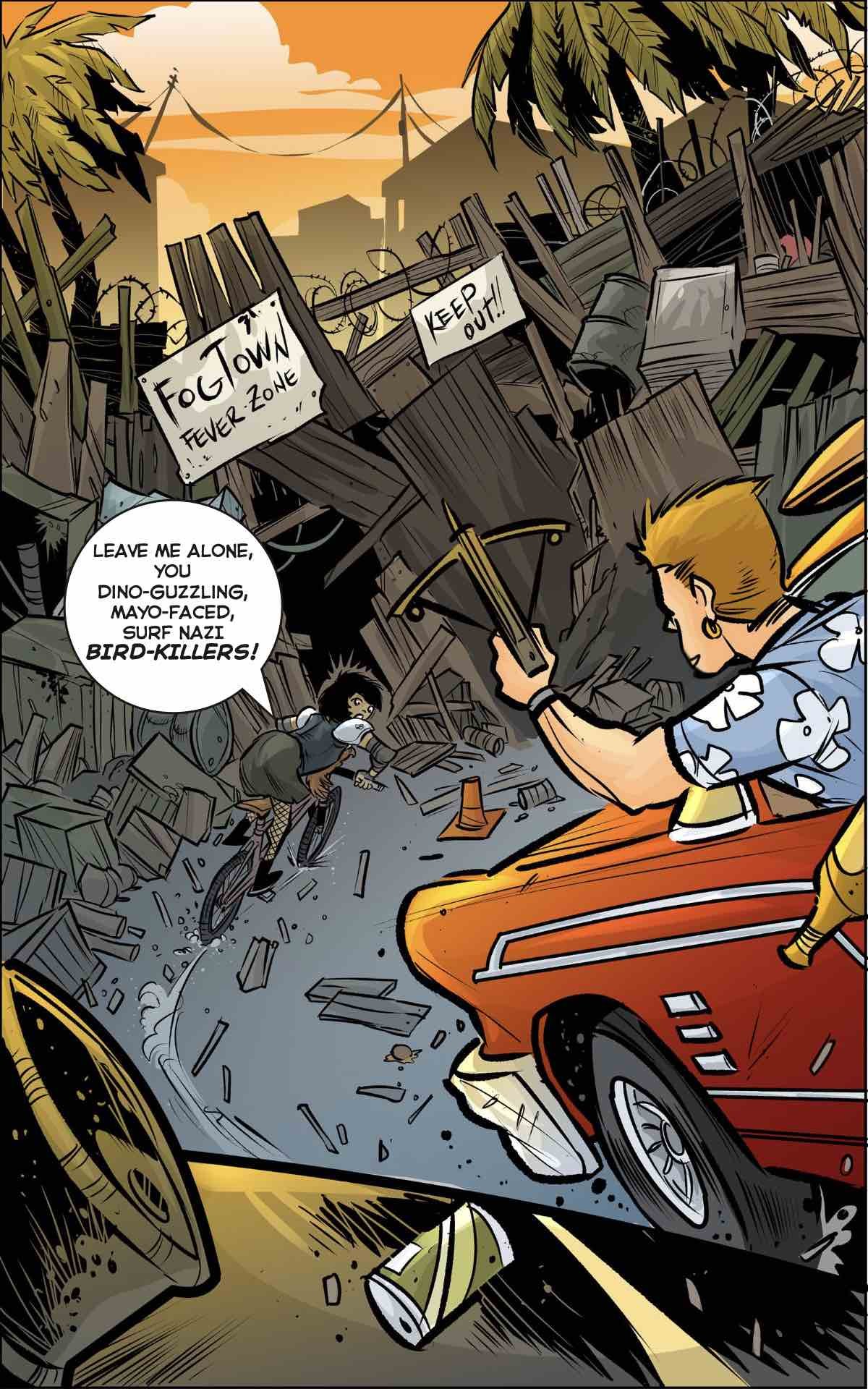
COMICS CREATORS
JOHN SEMPER + PAUL GOODENOUGH
talks with Ari Gold
John Semper is a prominent animation + comic writer-producer who has written for projects ranging from Spider-man to Miyazaki’s translations.
Paul Goodenough is a multi-award-winning, double Emmy nominated writer and producer, and the Founder of Rewriting Extinction which creates meme-able ecological comics.
They sat down to talk about ecological storytelling & Hollywood.
PAUL: The most valuable currency on the planet is attention. I think comics do that better than any other medium. It takes these massive ideas and distills them down to short panels, into the smallest nuggets of language. At the moment, climate change is most affecting the people furthest from ourselves. They are suffering far more than we are at the moment. So for us, it's tomorrow's problem. Whereas it’s today's problem for someone else. The message has to change.
ARI: The big problem with ecological storytelling coming out of Hollywood, is like someone says, “Okay, let's have a big issue movie.” But nobody wants homework. One of the themes in Fogtown is “it's not hard to fly, with our gentle power.” I want to get rid of the hardness and the “fighting” in climate change, and instead look at gentleness and power being linked together to be stronger than steel.
JOHN: Right! How many movies do we go to now where entire city blocks are destroyed? In the middle of a battle there’s a tomb that's been sitting there for thousands of years, that’s suddenly wrecked as Indiana Jones escapes from the villains. I look at that, thinking, “What kind of message are you sending? That an entire ancient tomb can just be destroyed while Indiana Jones gets away with the shiny rock?” It shows a lack of respect for the environment and for objects of value. For the world as a whole. And you’re trying to find new stories, Paul—?
PAUL: What I've done is worked with over 380 people from all over the planet, to take what they care about environmentally and turn it into a story. John, what you said about a city falling down or getting blown up, you understand - that’s Spectacle. It's not a story. One person struggling, one person's heroic sacrifice, that's a story. And that's what we need to do, we need to find the heart. The story is the bit of the thing that touches your heart right at the center of it, that when you've seen it, your heart is changed. And your behavior changes.
JOHN: The great thing about a comic book is that the reader can connect with the details. When I did Spider-Man, I chose not to have a lot of fist-to-face or fist-to-body contact, which may have started his tendency towards non-violence. We had audience members as young as six and seven, and I chose not to model physical violence. We need to start paying attention in our storytelling to some of these finer details, I think it will result in us being more aware not only of the planet, but of each other.